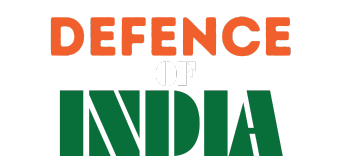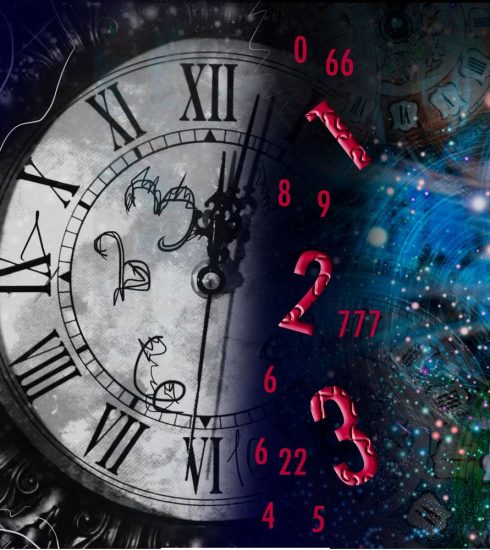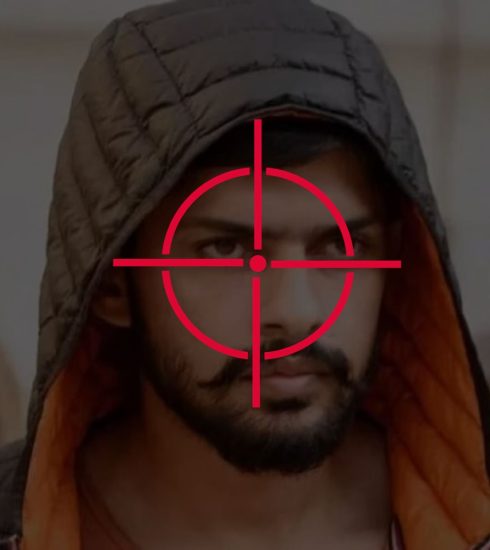What ISI-CIA-Mossad cooking in India’s North-East after Bangladesh coup
Talk with Pavneet
Pavneet: “Absolutely right, welcome back.”
Arihant Pawaria: “Yes, thank you, sir. Just a year ago, we were discussing distant issues, right? Russia-Ukraine, Israel-Hamas. But now, the geopolitical challenges have come right to our doorstep.”
Pavneet: “Absolutely. What’s happening with us in Jammu and Kashmir over the past few months makes it seem like China and Pakistan are coordinating the attacks. On the other hand, if you look at what’s happening in Bangladesh, until now, we thought what was happening in Manipur over the past year was somewhat of an isolated incident. But with what happened in Bangladesh and what Sheikh Hasina said about the United States, that its idea is to create a Christian nation in the Northeast by including parts of Myanmar and Bangladesh, mentioning even Saint Martin’s Island, it seems that this process has been ongoing for a long time and now all these pieces are coming together.”
Arihant Pawaria: “What’s your analysis? What do you think we’ll be witnessing in the coming months?”
Pavneet: “Let’s start with your first question about Kashmir. I’ve been saying for months now, repeatedly in chats, that Kashmir is heading towards a very dangerous trend. There are two things we need to understand about Kashmir. There is a general myth in the minds of the population that terrorism in Kashmir started in 1990. This is incorrect because terrorism in Kashmir has been ongoing since the 1950s, and there have been different waves of terrorism in Kashmir. There has never been just one wave. 1990 was one of those waves, which reached very high, but there were many waves before that as well. If you ever read the covert history of Kashmir, which you won’t find in general books, you will see that different types of organizations were formed, from master cells to alphas, creating a history that spans decades. If you explore it, you’ll understand the history.”
Arihant Pawaria: “So, the first point is that the terrorism happening in Kashmir right now should not be seen as a new form of terrorism; it is a continuation of that wave.”
Pavneet: “Exactly. However, there is a difference in this wave. The difference is that if we look from 1950 until 2015, the history of Kashmir until then was that Pakistan was an exclusive player. Since the abrogation of Article 370 in 2019, China has introduced a new angle in Kashmir’s terrorism, and since 2019, due to China, Kashmir’s terrorism has undergone significant transformation.”
Arihant Pawaria: “So what happened after 2019?”
Pavneet: “What happened after 2019 is that during the 2020-21 period, which was affected by COVID, there was a lot of brainstorming between Pakistan and China about how to unleash a new form of terrorism. From 2021 onward, after the end of 2021 and early 2022, if you observe, Pakistan did two things. First, their principal organizations, known as ‘Tanzim,’ which included Lashkar-e-Taiba and Jaish-e-Mohammed, were pushed to the background. A ‘Tanzim’ is a congregation in Islamic Jihad, a term we use in intelligence. They pushed back the ‘Tanzim’ of Lashkar-e-Taiba and Jaish-e-Mohammed and created a front organization for Lashkar-e-Taiba called ‘The Resistance Front.’ Similarly, for Jaish-e-Mohammed, they created a front organization called the ‘People’s Anti-Fascist Front.’
Now, if you look at this, the names ‘The Resistance Front’ and ‘People’s Anti-Fascist Front’ were given by Pakistan under the umbrella of ‘secular terrorism.’ They claimed that they are not waging Jihad in Kashmir; instead, it’s the Kashmiri people, the Indian citizens, who are waging Jihad. Just think about it; they tried to shift the entire narrative onto us. And what’s happening today is exactly this—Pakistan and China are working together. On the front line, you won’t see Lashkar-e-Taiba directly. You might catch someone from the Resistance Front or someone from the People’s Anti-Fascist Front, but who are these people? They are essentially from Lashkar-e-Taiba or Jaish-e-Mohammed. This is why the army repeatedly says in press conferences that they have caught a Lashkar terrorist, but when he was captured, he was posing as someone from the Resistance Front. When a Jaish-e-Mohammed operative is caught, he poses as someone from the People’s Anti-Fascist Front. These are front organizations, and the brain behind these front organizations is China.”
Arihant Pawaria: “What else has China done?”
Pavneet: “China has also used these front organizations as a way to test their armaments in the Kashmir theater. All the domestic armament development that China is doing in the name of self-reliance, they are testing it in Kashmir through these organizations. Now, look at what’s happening. Elections have been announced in Kashmir. Before the elections were announced, I’ve been saying in several chats over the past few months that until the results of the Kashmir elections, specifically until October 4th, you will see heavy violence in Kashmir. This will happen because Pakistan and China are conspiring to present a narrative to the world that the abrogation of Article 370 was a failure. They want to show that there is no peace in Kashmir, that Kashmir will never be peaceful, and that it’s a myth to think otherwise. China and Pakistan are trying to instill this belief in the minds of the global community.”
Arihant Pawaria: “And this strategy of transferring violence from the Kashmir theater to Jammu and carrying out targeted attacks, with reports suggesting that retired or serving Pakistani soldiers are involved in these targeted attacks on our soldiers—what do you make of this? I think around 50 of our soldiers have been martyred this year alone. How do you see this?”
Pavneet: “You need to understand something about the Kashmir Valley. What’s happening in the Valley right now is that the Kashmiri population has reached a saturation point. And consider this, because saturation has been reached in Kashmir, they feel that the people of Jammu, who were not as frustrated before, have become extremely frustrated with corruption and governance issues after the abrogation of Article 370. This ongoing terrorism is creating another layer of fear, which is causing significant frustration among the people of Jammu as well.”
Arihant Pawaria: “So what do you suggest?”
Pavneet: “I would explain this in two points. The first point is that over the past 10 years, whether it’s Jammu, Kashmir, or Ladakh, the local citizens in these regions have had no means of resolving their political grievances. If you or I have a problem, we would first go to our MLA to discuss it. If the MLA can’t resolve it, we would go to the municipal councilor. If the councilor can’t resolve it, we would go to the MLA. If the MLA can’t do it, we would go to the MP. But imagine, in Kashmir, for the past 10 years, none of this has existed. The population there has no way to redress their grievances.”
Arihant Pawaria: “So what can be done in such a situation?”
Pavneet: “The second point is that because all administration has been centralized in the office of the Lieutenant Governor (LG), unfortunately, there is no control over corruption, and the entire bureaucracy in Kashmir behaves as if Kashmir is their personal royal estate to exploit. Our public servants are not coming to serve the public; they are coming for personal gain. I teach, sir, so I know. If you ask any student here why they want to become an IAS officer, they won’t say it’s for public service. The person who scores high in the ethics paper in civil services is often found to exhibit the most unethical conduct in practical life.”
Arihant Pawaria: “There is a correlation; you can check it.”
Pavneet: “Yes, and it’s evident. I won’t say more about UPSC, sir; there have been so many cases in the past 10 years that it would cause a big controversy. It’s better to leave that topic alone. But no one is coming with the motive of public service. So the people are frustrated because they have no public representative, no elected representative as of now. Who do they go to? That’s the frustration—no one is resolving their grievances. Kashmir has been left aside, thinking ‘you are a Muslim population, we don’t care for you.’ Hindus have been left aside, and Punjabis have been told, ‘you figure out what you want to do.’ You will see, in the upcoming Kashmir elections, this taken-for-granted behavior over the past several years will have its consequences. Watch the results.”
Arihant Pawaria: “Now, let’s shift our focus to Bangladesh. What has happened and is happening there—everyone feels that ISI is involved, CIA is involved, even Mossad is involved. What’s happening in the Northeast? What possibilities do you see in the next one or two years that India needs to be alert to? Because it seems to me that if the US decides that it needs a base to counter China, and they decide to create a small country, it could pose a significant challenge for us.”
Pavneet: “Before understanding the US policy, you need to understand what the US intent is regarding this region. The US intent is simple—they want to maintain an aggressive stance against China, for which they need a piece of territory from where they can run all their operations. Now, if you look at Pakistan, the possibility of this happening is zero. In Nepal, the political parties are such that each party has three factions. Whether it’s the Nepali Congress or UML, every party has three factions: one pro-India, one pro-China, and one pro-US. As a result, there is no pro-US faction in any political party, which creates its own problem. Bhutan has made it clear that they will remain neutral no matter what.
Now, if I talk about Myanmar, for the past 25 to 30 years, China has maintained an aggressive posture there. The US tried to promote democracy through Aung San Suu Kyi, but that backfired, and China negated that move. So, it’s not wrong to say that Myanmar is sitting in China’s lap.”
Arihant Pawaria: “And what about Sri Lanka?”
Pavneet: “Sri Lanka is currently in a situation where it cannot be pro-India or pro-China. Just surviving as a nation is a big deal for them, and geographically, it’s quite far as well. Now, if we talk about Bangladesh and India, in the case of Bangladesh, Sheikh Hasina has been saying for quite some time that the US is trying to engage with China in trade, and she doesn’t mind as long as the US doesn’t interfere with Bangladesh’s sovereignty. But the US wants to have a military presence in Bangladesh to counter China’s presence in Myanmar and monitor the Siliguri Corridor, which is India’s chicken neck, and the entire Lhasa and Tibet region. But Sheikh Hasina outright refused.
Now, why did she refuse? You might say, if you look at Bangladesh, today it’s the biggest exporter of textiles to the US. Almost all textile imports in America are coming from Bangladesh and Vietnam. India’s textile industry isn’t even in the picture. So why did Bangladesh refuse? The biggest reason is China itself. If you analyze China-Bangladesh relations over the past one to one-and-a-half years, it becomes clear that China has come into Bangladesh, offering everything from submarines to defense armaments and even defense training. They’ve even gone as far as opening Mandarin language schools in Bangladesh to teach the language.
Because Bangladesh has a surplus labor force, which often illegally migrates to India, China said, ‘Why go to India? Come to us legally; we need labor. We’ll employ you here.’ So, they opened Mandarin language training schools. The problem now is that China’s presence in Bangladesh has become so significant, and China and Bangladesh are so economically interdependent, that Pavneet: “…the problem now is that China’s presence in Bangladesh has become so significant, and China and Bangladesh are so economically interdependent, that Bangladesh cannot allow the U.S. to have such a presence. As far as India is concerned, I am very sorry to say, but India’s stance has never been clear, even in the past 75 years. We claim to be true friends of Russia, but then we don’t always stand by Russia when needed. If Russia does something, we don’t support it fully. Then we say, ‘No, America is our true friend.’ But then we don’t fully align with America either. India is a confused power—this is my belief. Many people will disagree with me, but I don’t care. I’m stating facts based on evidence.
The problem with our country is that our foreign policy bureaucracy, our Indian Foreign Service (IFS) officers, who are in decision-making positions like Joint Secretary and above, are all recruited during the Cold War era. Their minds are filled with anti-U.S. sentiment. That mindset cannot change overnight. They were trained and taught to be pro-Soviet and anti-American. Now, these same people are rising to become Joint Secretaries, Additional Secretaries, and Foreign Secretaries. Meanwhile, political pressure is being put on them to change their stance, to become pro-America. But we still don’t know what exactly we want from America.
We don’t have a clear articulation of what we need. Our foreign policy officials will tell you stories about how ‘we are the strongest democracy, we are bound by democratic values,’ and they will weave you into a web of diplomatic rhetoric. But if you ask them for five clear points of what we want from America, they won’t be able to give you a straightforward answer.
First, ask yourself, does America support your global stature? No. Does America want to see you become a global power? No. Does America want to see you become a regional power? No. Does America want to give you leadership in the Indo-Pacific? No. Does America today want to see you as a regional hegemon in South Asia? No. So then, why do you go and lie down at America’s feet? What’s the logic? There’s no logic to it.
You can’t even figure out if you’re pro-America or pro-Russia. What is your identity as a nation?”
Arihant Pawaria: “Exactly. When you don’t know your identity, how can you define your goals in diplomatic dealings? If, for instance, tomorrow India and America sit down for talks, America will dictate terms, asking for bases and pushing their agenda. But what are we asking for in return? We don’t even know.”
Pavneet: “You’re thinking from America’s perspective. You’re saying that if India and America sit down, America will dictate terms, saying, ‘We want to build an airbase here, a naval base there.’ Okay, but what are we demanding in return? We have no idea. So, do we have any articulation of our goals? Is there any political consensus on our foreign policy?”
Arihant Pawaria: “And then we package it under the guise of ‘strategic autonomy,’ right?”
Pavneet: “That’s just an excuse—a mechanism of escapism. When we feel pressured by an international power, our standard response is ‘strategic autonomy.’ During the Cold War, this same ‘strategic autonomy’ was called ‘non-alignment.’
Arihant Pawaria: “In fact, if you look at history, there’s a lesson to be learned. Our situation today with PoK—or rather, the northern areas of Jammu and Kashmir, like Baltistan and Skardu—could have been different if Britain had trusted us. But they didn’t trust the leadership of the Indian National Congress because they wanted to keep a base here even after leaving. They needed to monitor the Soviet Union’s nuclear program, so they couldn’t just leave without securing their interests.”
Pavneet: “So, if they had confidence in dealing with India, things could have been different. But they didn’t have that confidence back then, and they don’t have it now. They trusted Pakistan instead, which is why they essentially gifted that region to Pakistan.”
Arihant Pawaria: “And they trusted Pakistan because Jinnah explicitly told Britain, ‘You can use our territory however you like; we have no issue with it.’”
Pavneet: “They were smart.”
Arihant Pawaria: “Exactly. I’m asking the same thing. Recently, our Prime Minister visited Russia. After that visit, suddenly a debate started in India about how we need infrastructure funding from China, how we should engage with China, and so on. Then, the very next day, the Ministry of External Affairs issues a statement saying, ‘No, our relations with China are very bad, we won’t engage with them.’ Why are we so confused?”
Pavneet: “Let me ask you this. I’ve spoken to many officials, and they tell me, ‘We need to engage with America because only America can give us the strength to move forward.’ I always ask them one question, and I want to ask the public as well: Name one country in the entire world that engaged with America and became so powerful that it could challenge America today. All the countries that engaged with America and grew in stature are, in reality, subservient to America today.”
Arihant Pawaria: “Look at Japan, look at Vietnam, look at South Korea, and even the four powers in Western Europe—France, Germany, Britain. You can look at all of them. Name one power in the entire world—there must be at least one.”
Pavneet: “Obviously, there isn’t any.”
Arihant Pawaria: “Why isn’t there?”
Pavneet: “So then, these so-called strategic community members, who sit at night at whiskey tables and talk about how we need to engage with America—ask them, who told you this? You’re pushing your agenda, not thinking about the country’s welfare. America is a country with a history of ‘use and throw.’ They want to use you today because they need to counter China. If you cooperate, they’ll stand with you; if not, they’ll find another way. America is like water—it will find its own path and move forward. It won’t wait for you, like a rock, to get in its way. It will find a way around you.”
Arihant Pawaria: “Exactly. And the concern is that while the water is finding its way around the rock, the rock itself might sink.”
Pavneet: “That’s what I’m saying. What happened to us in 1947, when Britain gifted the entire Baltistan region to Pakistan because they didn’t trust us to provide them a base, could happen again. I’m saying we shouldn’t deal with short-term interests, like securing our national interests, because we know that America won’t sustain its presence here for long.”
Arihant Pawaria: “Sir, you’re wrong in this aspect. There’s one critical factor that nobody is considering, and it’s crucial to understand. For the past 30 to 40 years, America has been deeply involved in the entire Northeast region, from Nepal to northern Bangladesh, northeastern India, and parts of the North-South belt, including Odisha, Chhattisgarh, Jharkhand, and Bihar. Over the past 30-35 years, America has been carrying out Christian reconversion efforts and has converted a significant portion of the population to Christianity. You can’t even imagine the extent of this. Hypothetically, if an independent country were to be carved out of this region, this Christian population, which was once our own, could very well demand a separate state.”
Pavneet: “Exactly. Tomorrow, the same population could demand a separate state, creating an even more complex situation for India.”
Arihant Pawaria: “Exactly. And that’s the biggest concern. Given how things are progressing, if we aren’t vigilant and don’t clarify our strategies, we will face significant challenges in the future.”
Pavneet: “You’re absolutely right. We need to be very clear and firm in our policies and stance.”
Arihant Pawaria: “And then this strategy of transferring violence from the Kashmir theater to Jammu and carrying out targeted attacks—there are reports suggesting that retired or serving Pakistani soldiers are involved in these targeted attacks on our soldiers. I think around 50 of our soldiers have been martyred this year alone. How do you see this?”
Pavneet: “You need to understand something about the Kashmir Valley. What’s happening in the Valley right now is that the Kashmiri population has reached a saturation point. And consider this—because saturation has been reached in Kashmir, they feel that the people of Jammu, who were not as frustrated before, have become extremely frustrated with corruption and governance issues after the abrogation of Article 370. This ongoing terrorism is creating another layer of fear, which is causing significant frustration among the people of Jammu as well.”
Arihant Pawaria: “So what do you suggest?”
Pavneet: “I would explain this in two points. The first point is that over the past 10 years, whether it’s Jammu, Kashmir, or Ladakh, the local citizens in these regions have had no means of resolving their political grievances. If you or I have a problem, we would first go to our MLA to discuss it. If the MLA can’t resolve it, we would go to the municipal councilor. If the councilor can’t resolve it, we would go to the MLA. If the MLA can’t do it, we would go to the MP. But imagine, in Kashmir, for the past 10 years, none of this has existed. The population there has no way to redress their grievances.”
Arihant Pawaria: “So what can be done in such a situation?”
Pavneet: “The second point is that because all administration has been centralized in the office of the Lieutenant Governor (LG), unfortunately, there is no control over corruption, and the entire bureaucracy in Kashmir behaves as if Kashmir is their personal royal estate to exploit. Our public servants are not coming to serve the public; they are coming for personal gain. I teach, sir, so I know. If you ask any student here why they want to become an IAS officer, they won’t say it’s for public service. The person who scores high in the ethics paper in civil services is often found to exhibit the most unethical conduct in practical life.”
Arihant Pawaria: “There is a correlation; you can check it.”
Pavneet: “Yes, and it’s evident. I won’t say more about UPSC, sir; there have been so many cases in the past 10 years that it would cause a big controversy. It’s better to leave that topic alone. But no one is coming with the motive of public service. So the people are frustrated because they have no public representative, no elected representative as of now. Who do they go to? That’s the frustration—no one is resolving their grievances. Kashmir has been left aside, thinking ‘you are a Muslim population, we don’t care for you.’ Hindus have been left aside, and Punjabis have been told, ‘you figure out what you want to do.’ You will see, in the upcoming Kashmir elections, this taken-for-granted behavior over the past several years will have its consequences. Watch the results.”
Arihant Pawaria: “Now, let’s shift our focus to Bangladesh. What has happened and is happening there—everyone feels that ISI is involved, CIA is involved, even Mossad is involved. What’s happening in the Northeast? What possibilities do you see in the next one or two years that India needs to be alert to? Because it seems to me that if the US decides that it needs a base to counter China, and they decide to create a small country, it could pose a significant challenge for us.”
Pavneet: “Before understanding the US policy, you need to understand what the US intent is regarding this region. The US intent is simple—they want to maintain an aggressive stance against China, for which they need a piece of territory from where they can run all their operations. Now, if you look at Pakistan, the possibility of this happening is zero. In Nepal, the political parties are such that each party has three factions. Whether it’s the Nepali Congress or UML, every party has three factions: one pro-India, one pro-China, and one pro-US. As a result, there is no pro-US faction in any political party, which creates its own problem. Bhutan has made it clear that they will remain neutral no matter what.
Now, if I talk about Myanmar, for the past 25 to 30 years, China has maintained an aggressive posture there. The US tried to promote democracy through Aung San Suu Kyi, but that backfired, and China negated that move. So, it’s not wrong to say that Myanmar is sitting in China’s lap.”
Arihant Pawaria: “And what about Sri Lanka?”
Pavneet: “Sri Lanka is currently in a situation where it cannot be pro-India or pro-China. Just surviving as a nation is a big deal for them, and geographically, it’s quite far as well. Now, if we talk about Bangladesh and India, in the case of Bangladesh, Sheikh Hasina has been saying for quite some time that the US is trying to engage with China in trade, and she doesn’t mind as long as the US doesn’t interfere with Bangladesh’s sovereignty. But the US wants to have a military presence in Bangladesh to counter China’s presence in Myanmar and monitor the Siliguri Corridor, which is India’s chicken neck, and the entire Lhasa and Tibet region. But Sheikh Hasina outright refused.
Now, why did she refuse? You might say, if you look at Bangladesh, today it’s the biggest exporter of textiles to the US. Almost all textile imports in America are coming from Bangladesh and Vietnam. India’s textile industry isn’t even in the picture. So why did Bangladesh refuse? The biggest reason is China itself. If you analyze China-Bangladesh relations over the past one to one-and-a-half years, it becomes clear that China has come into Bangladesh, offering everything from submarines to defense armaments and even defense training. They’ve even gone as far as opening Mandarin language schools in Bangladesh to teach the language.
Because Bangladesh has a surplus labor force, which often illegally migrates to India, China said, ‘Why go to India? Come to us legally; we need labor. We’ll employ you here.’ So, they opened Mandarin language training schools. The problem now is that China’s presence in Bangladesh has become so significant, and China and Bangladesh are so economically interdependent, that Bangladesh cannot allow the U.S. to have such a presence.”
Pavneet: “As far as India is concerned, I am very sorry to say, but India’s stance has never been clear, even in the past 75 years. We claim to be true friends of Russia, but then we don’t always stand by Russia when needed. If Russia does something, we don’t support it fully. Then we say, ‘No, America is our true friend.’ But then we don’t fully align with America either. India is a confused power—this is my belief. Many people will disagree with me, but I don’t care. I’m stating facts based on evidence.
The problem with our country is that our foreign policy bureaucracy, our Indian Foreign Service (IFS) officers, who are in decision-making positions like Joint Secretary and above, are all recruited during the Cold War era. Their minds are filled with anti-U.S. sentiment. That mindset cannot change overnight. They were trained and taught to be pro-Soviet and anti-American. Now, these same people are rising to become Joint Secretaries, Additional Secretaries, and Foreign Secretaries. Meanwhile, political pressure is being put on them to change their stance, to become pro-America. But we still don’t know what exactly we want from America.
We don’t have a clear articulation of what we need. Our foreign policy officials will tell you stories about how ‘we are the strongest democracy, we are bound by democratic values,’ and they will weave you into a web of diplomatic rhetoric. But if you ask them for five clear points of what we want from America, they won’t be able to give you a straightforward answer.
First, ask yourself, does America support your global stature? No. Does America want to see you become a global power? No. Does America want to see you become a regional power? No. Does America want to give you leadership in the Indo-Pacific? No. Does America today want to see you as a regional hegemon in South Asia? No. So then, why do you go and lie down at America’s feet? What’s the logic? There’s no logic to it.”
Arihant Pawaria: “You can’t even figure out if you’re pro-America or pro-Russia. What is your identity as a nation?”
Pavneet: “Exactly. When you don’t know your identity, how can you define your goals in diplomatic dealings? If, for instance, tomorrow India and America sit down for talks, America will dictate terms, asking for bases and pushing their agenda. But what are we asking for in return? We don’t even know.”
Arihant Pawaria: “You’re thinking from America’s perspective. You’re saying that if India and America sit down, America will dictate terms, saying, ‘We want to build an airbase here, a naval base there.’ Okay, but what are we demanding in return? We have no idea. So, do we have any articulation of our goals? Is there any political consensus on our foreign policy?”
Pavneet: “And then we package it under the guise of ‘strategic autonomy,’ right?”
Arihant Pawaria: “That’s just an excuse—a mechanism of escapism. When we feel pressured by an international power, our standard response is ‘strategic autonomy.’ During the Cold War, this same ‘strategic autonomy’ was called ‘non-alignment.’
Pavneet: “In fact, if you look at history, there’s a lesson to be learned. Our situation today with PoK—or rather, the northern areas of Jammu and Kashmir, like Baltistan and Skardu—could have been different if Britain had trusted us. But they didn’t trust the leadership of the Indian National Congress because they wanted to keep a base here even after leaving. They needed to monitor the Soviet Union’s nuclear program, so they couldn’t just leave without securing their interests.”
Arihant Pawaria: “So, if they had confidence in dealing with India, things could have been different. But they didn’t have that confidence back then, and they don’t have it now. They trusted Pakistan instead, which is why they essentially gifted that region to Pakistan.”
Pavneet: “And they trusted Pakistan because Jinnah explicitly told Britain, ‘You can use our territory however you like; we have no issue with it.’”
Arihant Pawaria: “They were smart.”
Pavneet: “Exactly. I’m asking the same thing. Recently, our Prime Minister visited Russia. After that visit, suddenly a debate started in India about how we need infrastructure funding from China, how we should engage with China, and so on. Then, the very next day, the Ministry of External Affairs issues a statement saying, ‘No, our relations with China are very bad, we won’t engage with them.’ Why are we so confused?”
Arihant Pawaria: “Let me ask you this. I’ve spoken to many officials, and they tell me, ‘We need to engage with America because only America can give us the strength to move forward.’ I always ask them one question, and I want to ask the public as well: Name one country in the entire world that engaged with America and became so powerful that it could challenge America today. All the countries that engaged with America and grew in stature are, in reality, subservient to America today.”
Pavneet: “Look at Japan, look at Vietnam, look at South Korea, and even the four powers in Western Europe—France, Germany, Britain. You can look at all of them. Name one power in the entire world—there must be at least one.”
Arihant Pawaria: “Obviously, there isn’t any.”
Pavneet: “Why isn’t there?”
Arihant Pawaria: “So then, these so-called strategic community members, who sit at night at whiskey tables and talk about how we need to engage with America—ask them, who told you this? You’re pushing your agenda, not thinking about the country’s welfare. America is a country with a history of ‘use and throw.’ They want to use you today because they need to counter China. If you cooperate, they’ll stand with you; if not, they’ll find another way. America is like water—it will find its own path and move forward. It won’t wait for you, like a rock, to get in its way. It will find a way around you.”
Pavneet: “Exactly. And the concern is that while the water is finding its way around the rock, the rock itself might sink.”
Arihant Pawaria: “That’s what I’m saying. What happened to us in 1947, when Britain gifted the entire Baltistan region to Pakistan because they didn’t trust us to provide them a base, could happen again. I’m saying we shouldn’t deal with short-term interests, like securing our national interests, because we know that America won’t sustain its presence here for long.”
Pavneet: “Sir, you’re wrong in this aspect. There’s one critical factor that nobody is considering, and it’s crucial to understand. America has been deeply involved in the entire Northeast region, from Nepal to northern Bangladesh, northeastern India, and parts of the North-South belt, including Odisha, Chhattisgarh, Jharkhand, and Bihar, for the past 30 to 40 years. Over these past 30-35 years, America has been carrying out Christian reconversion efforts and has converted a significant portion of the population to Christianity. You can’t even imagine the extent of this. Hypothetically, if an independent country were to be carved out of this region, this Christian population, which was once our own, could very well demand a separate state.”
Arihant Pawaria: “Exactly. Tomorrow, the same population could demand a separate state, creating an even more complex situation for India.”
Pavneet: “Exactly. And that’s the biggest concern. Given how things are progressing, if we aren’t vigilant and don’t clarify our strategies, we will face significant challenges in the future.”
Arihant Pawaria: “You’re absolutely right. We need to be very clear and firm in our policies and stance.”






